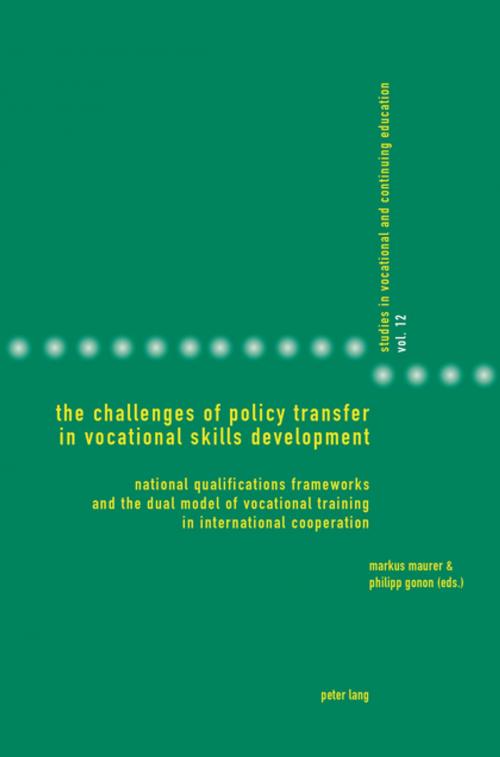The Challenges of Policy Transfer in Vocational Skills Development
National Qualifications Frameworks and the Dual Model of Vocational Training in International Cooperation
Nonfiction, Reference & Language, Education & Teaching, Educational Theory, Multicultural Education, Adult & Continuing Education| Author: | ISBN: | 9783035195637 | |
| Publisher: | Peter Lang | Publication: | November 25, 2014 |
| Imprint: | Peter Lang AG, Internationaler Verlag der Wissenschaften | Language: | English |
| Author: | |
| ISBN: | 9783035195637 |
| Publisher: | Peter Lang |
| Publication: | November 25, 2014 |
| Imprint: | Peter Lang AG, Internationaler Verlag der Wissenschaften |
| Language: | English |
In the context of renewed global interest in the development of vocational skills, policy makers in many countries as well as representatives of technical organisations often hope to reform existing training systems by borrowing models and policies that seem to work elsewhere. One of these prominent models is that of ‘National Qualifications Framework’, the use of which now spans the entire globe. On a much smaller scale, the ‘Dual Model’ of vocational training – a systematic combination of school and workplace-based learning that is common in a number of countries in Western Europe – has also gained attention in international cooperation.
Bringing together contributions from authors involved in both the theory and practice of vocational skills training development, this volume analyses the challenges that are tied to the transfer of these two dominant models in the context of international cooperation, sheds light on how they are being implemented, and discusses alternatives to the standard approaches to policy transfer.
In the context of renewed global interest in the development of vocational skills, policy makers in many countries as well as representatives of technical organisations often hope to reform existing training systems by borrowing models and policies that seem to work elsewhere. One of these prominent models is that of ‘National Qualifications Framework’, the use of which now spans the entire globe. On a much smaller scale, the ‘Dual Model’ of vocational training – a systematic combination of school and workplace-based learning that is common in a number of countries in Western Europe – has also gained attention in international cooperation.
Bringing together contributions from authors involved in both the theory and practice of vocational skills training development, this volume analyses the challenges that are tied to the transfer of these two dominant models in the context of international cooperation, sheds light on how they are being implemented, and discusses alternatives to the standard approaches to policy transfer.















